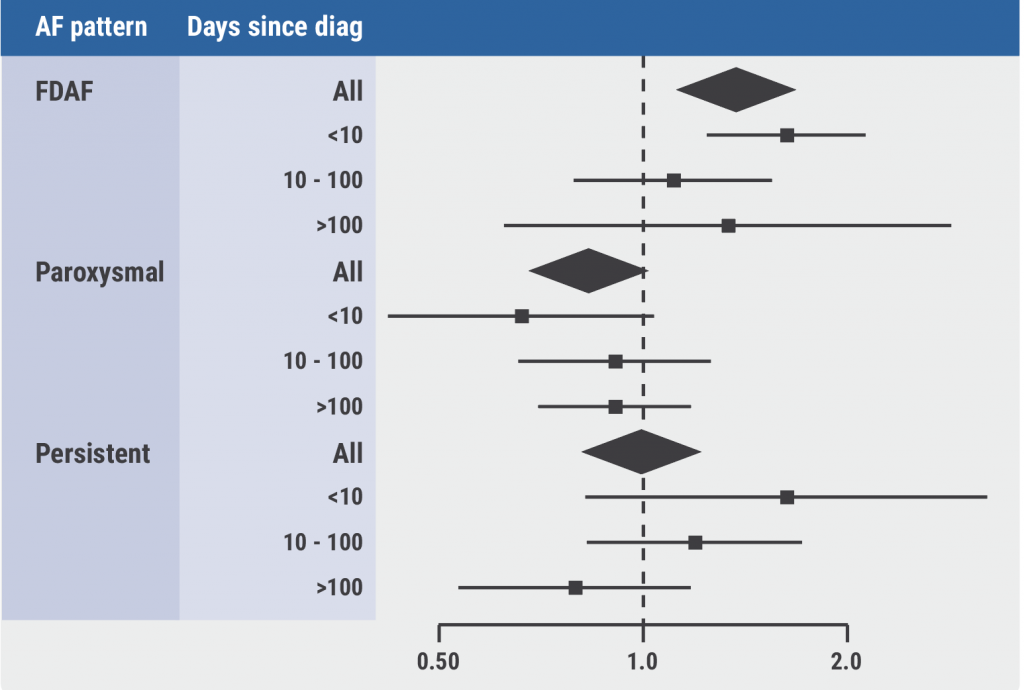https://doi.org/10.55788/6717d994
In this episode (30:55 min), Medicom’s correspondent covers 6 presentations from the American Heart Association (AHA) Scientific Sessions 2021, which was held entirely virtually this year from 13-15 November 2021. The topics discussed are:
- Novel anticoagulant milvexian efficacious in reducing postoperative VTE
Milvexian, a novel factor XIa inhibitor, was associated with a reduced risk of postoperative venous thromboembolism (VTE) after total knee replacement surgery in the phase 2 AXIOMATIC-TKR trial. Moreover, the associated risk of bleeding was low for this treatment. The promising results of this trial confirm the emerging role of factor XI inhibition in anticoagulant agents. There is an interview with Dr. Alexander Blood, after our summaries, taking a deep dive on one of these featured articles. - Early surgery outperforms conservative management in asymptomatic severe aortic stenosis
The AVATAR trial demonstrated the benefits of early surgical aortic valve replacement compared with conservative management in patients with asymptomatic severe aortic stenosis with a normal left ventricular function. These results show that surgery is indicated when aortic stenosis is significant, albeit asymptomatic. - Head-to-head: efficacy of dabigatran versus warfarin on cognitive impairment
Dabigatran treatment in older patients with atrial fibrillation (AF) or atrial flutter did not result in different cognitive outcomes than warfarin treatment after 2 years, as demonstrated in the phase 4 GIRAF trial. The CAF trial (NCT03061006) and the BRAIN-AF trial (NCT02387229) are other randomised trials currently investigating the effects of direct oral anticoagulants on cognitive functioning in patients with AF. - Remote healthcare programme improves hypertension and lipid control
A remote, algorithm-driven programme with over 10,000 enrolled participants was able to reduce hypertension and LDL cholesterol in patients with a high risk for cardiovascular events. The programme may reduce the need for in-person visitations. Moreover, the remote programme could provide equitable care across underserved populations. - External support device for SVG in CABG surgery is promising
No significant difference in intimal hyperplasia was reported between supported and unsupported saphenous vein grafts (SVGs) in patients who underwent coronary artery bypass graft (CABG) surgery in the VEST trial. However, the additional sensitivity analysis did show benefits of the externally supported SVG. No safety issues were observed. Further investigation of external graft support devices is warranted. - Novel oral PCSK9 inhibitor shows promising results for hypercholesterolaemia
MK-0616, an oral PCSK9 inhibitor in development, was efficacious in lowering LDL cholesterol in patients with hypercholesterolaemia treated with statins. The drug showed a favourable safety profile across two phase 1 trials. An oral PCSK9 inhibitor could help overcome treatment barriers, providing cardiovascular risk reductions for patients with hypercholesterolaemia in an earlier phase.
Enjoy listening!
Copyright ©2021 Medicom Medical Publisher
Posted on
Previous Article
« Laparoscopic distal gastrectomy noninferior to open procedures for gastric cancer Next Article
Older blood thinners tied to increased risk of delayed brain bleeds after head injury »
« Laparoscopic distal gastrectomy noninferior to open procedures for gastric cancer Next Article
Older blood thinners tied to increased risk of delayed brain bleeds after head injury »
Table of Contents: AHA 2021
Featured articles
The scope of remote healthcare in hypertension and hyperlipidaemia
Atrial Fibrillation
New developments in remote diagnostics and monitoring of AF
Head-to-head: Efficacy of dabigatran versus warfarin on cognitive impairment
Posterior left pericardiotomy safe and effective in reducing atrial fibrillation
LAA ligation did not reduce recurrent atrial arrhythmias in persistent AF
Equal benefits of early rhythm control in AF subtypes
CVD Risk Reduction
Remote healthcare programme improves hypertension and lipid control
Novel oral PCSK9 inhibitor shows promising results for hypercholesterolaemia
REVERSE-IT: Interim analysis shows promising effect of bentracimab on ticagrelor reversal
No significant effect of aspirin on reducing cognitive impairment
Milvexian phase 2 data supports safety and efficacy for VTE prevention after total knee replacement
Network meta-analysis observes no clear effect of eicosapentaenoic acid on CV outcomes
Heart Failure
Empagliflozin efficacious in HF patients with preserved ejection fractions ≥50%
EMPULSE: Empagliflozin improves outcomes of acute heart failure
CHIEF-HF: Canagliflozin improves health status in heart failure
DREAM-HF: MPC therapy for HFrEF did not meet primary endpoint
Therapeutic approaches in heart failure with diabetes
Acute Coronary Syndrome
Ticagrelor cessation: early CABG non-inferior to delayed surgery
Distinguishing patients before AMI based on plaque morphology
Vascular Diseases: PVD
Rivaroxaban regimen beneficial after revascularisation for claudication
LIBERTY 360 shows quality-of-life improvements after peripheral vascular intervention
Deficient treatment outcomes after PVI in Black and low-income adults with PAD
REDUCE-IT: Cardiovascular risk reduction with icosapent ethyl in PAD
Vascular Diseases: CAD
Long-term reduced risk of CV events with ticagrelor plus aspirin after CABG
Early surgery outperforms conservative management in asymptomatic severe aortic stenosis
External support device for SVG grafts in CABG surgery shows promise
COVID-19 & the Heart
Blood pressure control disrupted during the pandemic
Icosapent ethyl did not reduce the risk of hospitalisation in COVID-19
Neutral effect of P2Y12 inhibitors in non-critical COVID-19 hospitalisations
COVID-19 mRNA vaccination benefits outweigh the risk for myocarditis
Other
2021 Guideline for Chest Pain: Top 10 takeaways
Accurate ejection fraction assessment in paediatric patients via artificial intelligence
Concomitant tricuspid annuloplasty reduces treatment failure in moderate tricuspid regurgitation
Related Articles

November 30, 2021
The scope of remote healthcare in hypertension and hyperlipidaemia

January 14, 2022
Equal benefits of early rhythm control in AF subtypes

January 14, 2022
Remote healthcare programme improves hypertension and lipid control
© 2024 Medicom Medical Publishers. All rights reserved. Terms and Conditions | Privacy Policy
HEAD OFFICE
Laarderhoogtweg 25
1101 EB Amsterdam
The Netherlands
T: +31 85 4012 560
E: publishers@medicom-publishers.com

